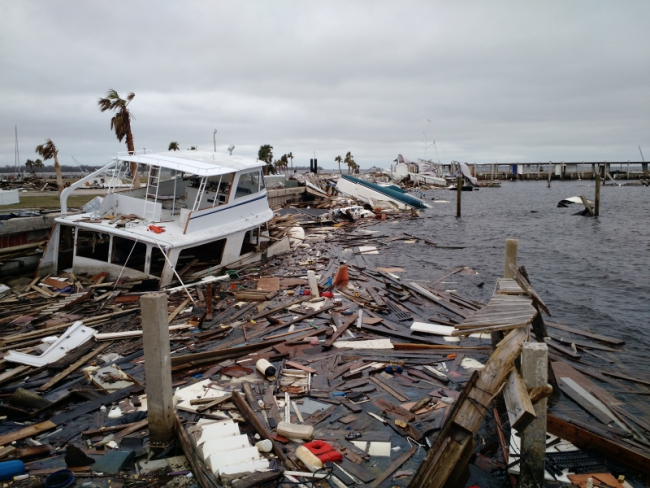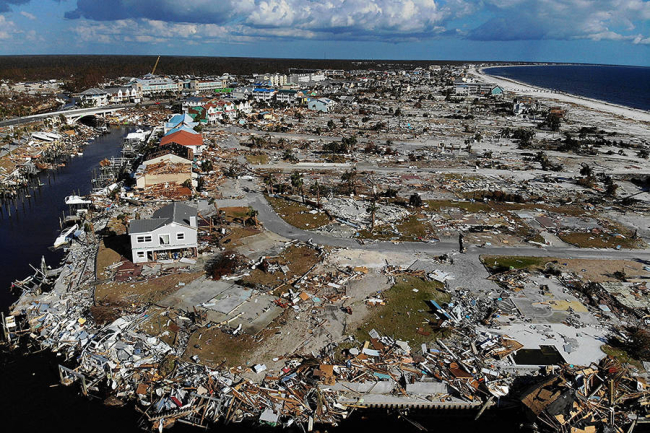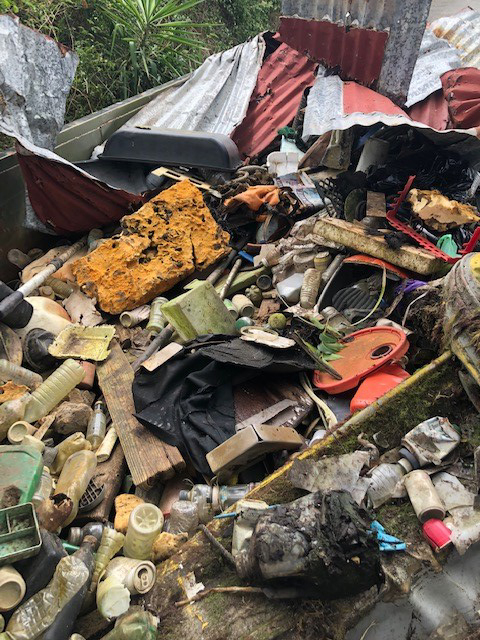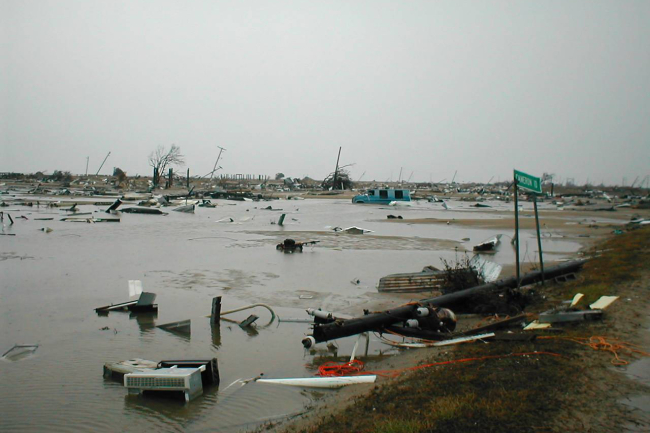As we approach the 2022 hurricane season, we are sharing NOAA Marine Debris Program resources to help you prepare for storms and prevent storm-generated debris from accumulating in waterways and on shorelines. Hurricanes and typhoons are among nature's most powerful and destructive events, and when these natural disasters strike they can create massive amounts of debris. That’s why the NOAA Marine Debris Program is participating in Hurricane Preparedness Week and working with coastal states and U.S. territories to help communities prepare for hurricanes and prevent and respond to marine debris.
The high winds and rain, strong waves, and storm surges associated with hurricanes can damage or destroy homes, boats, and property. They put you, your family, and community at risk, and have the potential to create large amounts of marine debris. Planning is key to reduce the potential impacts when you live in storm prone areas. Make sure you are planning to keep your family safe, to protect your home and other property from getting damaged, and to prevent contributing to the marine debris problem.
In order to reduce these impacts from severe storms and hurricanes, the NOAA Marine Debris Program provides emergency response tools and guidance to better prepare:
- Storm Preparedness Tips (English & Spanish) - This document runs through some basic steps to prepare for storms and prevent your property from becoming marine debris.
- Marine Debris Emergency Response Guides - Severe storms can generate huge amounts of disaster debris. Since this debris can hurt the environment and make waterways dangerous, the NOAA Marine Debris Program works with states, cities, and counties to prepare ahead of time. State and territory marine debris emergency response guides help governments better understand who does what when responding to marine debris after disasters. Guides have been published for twelve coastal states and the U.S. Virgin Islands, with a goal to complete one for every coastal state and territory. Check out all of the marine debris emergency response guides.
- Funding - The NOAA Marine Debris Program offers several nationwide, competitive funding opportunities for marine debris removal, prevention, and research. Disaster relief funding may become available to support states and U.S. territories in the wake of an event.
- Regional Coordinators - Your NOAA Marine Debris Program regional coordinator is there to help if you have questions about response efforts in your area or want to learn more about the emergency response plans and the available resources for hurricane preparation and response.
The best way to be prepared for this year’s hurricane season is to understand how these events can impact the places where you live and work. Please take a few minutes to watch these engaging videos that explain how hurricanes work and provide great tips on staying safe. By using the resources provided by the NOAA Marine Debris Program, visiting the National Hurricane Center website, and preparing before the storm, you are one step closer to being hurricane strong.




